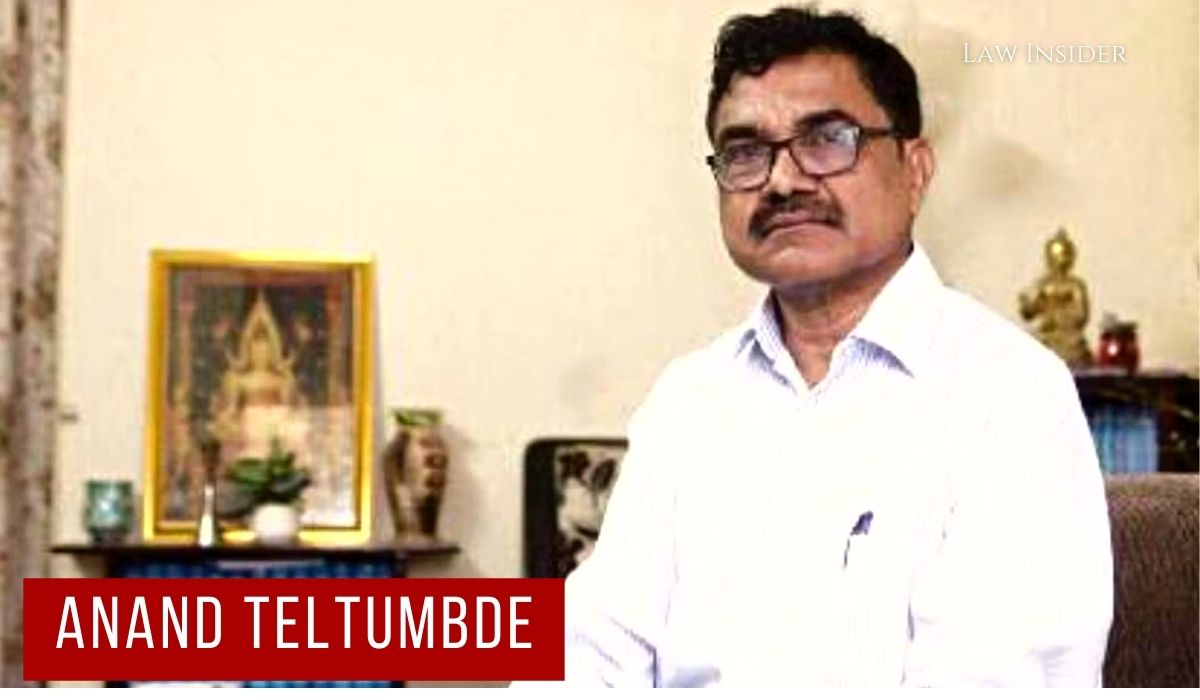Savvy Thakur
Published on: 19 November 2022 at 18:35 IST
Anand Teltumbde, a scholar and Dalit rights activist who has been held in Taloja Central Prison since 2020 for his alleged role in the 2018 Bhima Koregaon violence, was granted bail by the Bombay High Court.
After spending a considerable amount of time hearing the application and reserving its order last week, a bench composed of Justices AS Gadkari and Milind Jadhav delivered the verdict today.
The Bench stated that Teltumbde was only charged with violations of Sections 38 and 39 of the Unlawful Activities Prevention(pertaining to membership in a terrorist organization). He had already spent more than two years behind bars for those crimes, which carried a maximum penalty of ten years in prison.
Keeping all these facts in mind, the Court this time granted him bail.
The NIA argued that Teltumbde was responsible for organizing the December Elgar Parishad event, where he also gave provocative speeches that sparked riots on January 1, 2018.
Advocate Sandesh Patil for the NIA argued that the speeches given at the event were allegedly supported by the Communist Party of India (Maoist), a banned terrorist organization.
He also provided the relevant chargesheet excerpts and annexed evidence to demonstrate the evidence the agency had gathered against the accused to demonstrate his alleged involvement in the event. Further added that Teltumbde kept in touch with his brother, Milind Teltumbde, who was killed in a fight in Gadchiroli earlier this year and was thought to be a Maoist leader.
Additionally, Patil argued that Teltumbde would attend a number of international conferences to allegedly advance the Maoist cause.
In September of last year, the scholar filed a petition with the High Court after the Special Court under the NIA Act denied him bail on the grounds that he belonged to the Communist Party of India (Maoist), a banned organization.
In his plea, Teltumbde also asked for the National Investigation Agency (NIA) Act to overturn the Special Court’s decision to deny him bail for the following reasons:
That charge sheet is thousands of pages long, and the NIA has admittedly planned to question over 200 witnesses; Because of this, the trial would take years to complete, requiring years of incarceration;
Because the purpose of bail is to guarantee the accused’s attendance at the trial, it should not be withheld as a punishment.
Additionally, the plea emphasized the error in the special court order’s determination that he belonged to a banned organization.
He argued that the central government had to either notify the organization or add it to the UAPA’s Schedule for it to be considered “banned.”
Senior Advocate Mihir Desai, who represented Teltumbde, argued that the minimum that should be done in his case is to place him under house arrest rather than in jail if bail is not granted.
He said that the chargesheets against Teltumbde did not mention any acts of terrorism, so the Unlawful Activities Prevention Act (UAPA) did not prevent him from being released on bail.
Desai also said that Teltumbde was an academic and was frequently invited to national and international conferences, so it was not a crime to attend them all.

